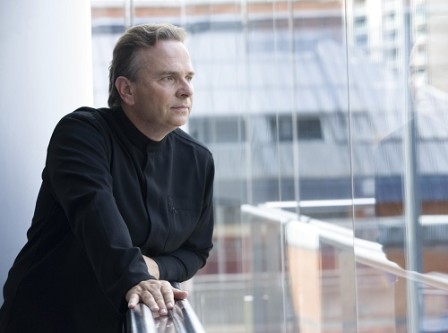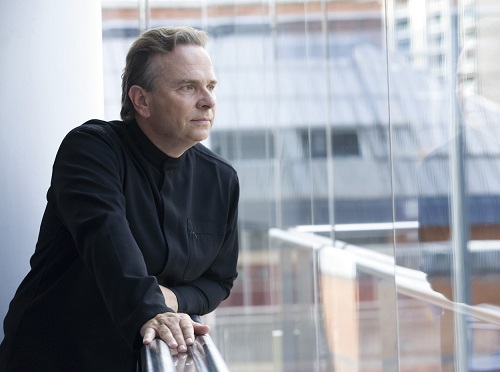 United Kingdom Tchaikovsky, Liszt, Beethoven: Benjamin Grosvenor (piano), Hallé Orchestra/Sir Mark Elder (conductor), Bridgewater Hall, Manchester, 25.9.2016. (MC)
United Kingdom Tchaikovsky, Liszt, Beethoven: Benjamin Grosvenor (piano), Hallé Orchestra/Sir Mark Elder (conductor), Bridgewater Hall, Manchester, 25.9.2016. (MC)

Tchaikovsky: Hamlet, fantasy overture
Liszt: Piano Concerto No. 1
Beethoven: Symphony No. 6 ‘Pastoral’
This season opener was my first Hallé concert since attending major international music festivals in Dresden and Berlin. It would have been satisfying to have seen the Manchester orchestra rubbing shoulders with the likes of the Staatskapelle Dresden, Concertgebouw, Boston Symphony Orchestra, Berliner Philharmoniker et al and playing in such wonderful concert acoustics as provided by the Semperoper, Dresden and Philharmonie, Berlin.
The design of the Hallé programme certainly appealed to my taste. Comprising works by three world famous composers, two which are not played as often in the concert hall as one might expect, and a symphony which is a masterwork with an enduring quality.
Written in 1888 Tchaikovsky’s Hamlet is the third of Tchaikovsky’s Shakespearean overtures and follows his much admired Romeo and Juliet by almost twenty years, a work that Hamlet has never matched in popularity. Elder gave a stirring performance brimming with ecstasy and excitement managing to hold the emotional tension convincingly. The playing felt both decisive and dramatic and the mood of the concluding section reminded me at times of Rachmaninov’s Isle of the Dead. Given plenty of opportunity to shine, the oboe playing of Stéphane Rancourt has to be singled out for special praise.
In 1982 I came to know the Liszt First Piano Concerto with an EMI recording performed by Cécile Ousset with the CBSO under Simon Rattle. At the time I remember reading that critic Eduard Hanslick mockingly called this work the ‘triangle concerto’ owing to its prominent use of the triangle. It was the dazzling virtuoso Liszt himself who introduced the score in Weimar in 1855 with Berlioz conducting. Tonight’s soloist Benjamin Grosvenor has been carving out a successful international career for himself after an auspicious early start and I recall first seeing him perform splendidly in recital at a BDP concert series in Preston when he was still at school. With considerable concentration Grosvenor played the concerto well and seemed to revel in the attractive and memorable material. Yet Grosvenor’s interpretation never caught fire for me. I was left wanting additional verve, buoyancy and greater weight after all it was written by one of the greatest showmen in piano history who was idolised for dazzling his concert audiences.
Highly successful was the performance of Beethoven’s Sixth Symphony ‘Pastoral’. Beethoven rarely journeyed into programme music but with the ‘Pastoral’ he created one of the greatest examples ever. Also completed in 1808 this score of Beethoven’s “expressions of feelings” suggesting a walk through rustic scenes is constructed in five movements. One of the most frequently encountered symphonies in the whole repertoire but a difficult work to pull off in the concert hall. Prior to the concert Elder took the microphone and gave a short but generally welcome description of the ‘Pastoral’ and his arrangement of the orchestra which divided the strings into five discernible sections. Having heard the ‘Pastoral’ a number of times in recent years I did wonder if listener fatigue would set in. I needn’t have worried as with Elder’s interpretation everything felt so cohesive that at the conclusion I wondered where the time had gone. Noticeably Elder didn’t complicate matters, eschewing any outlandish interpretative liberties. Admirable was the Hallé’s clean, clear string sound without overdoing the vibrato and beautifully blended woodwind with unruffled, colourful brass all combining to illuminate the magnificent writing. Especially notable was the opening movement ‘Awakening of cheerful feelings of life upon arrival in the countryside’ which felt as if Beethoven’s joyous traveller had opened the door to a spectacular Tyrolean vista. So compellingly evocative, and taken as slow as he dare, the ‘Scene by the Brook’ flowed genially creating an enchanting, near dreamy mood. Throughout the high strings excelled together with impressive individual and collective brass and woodwind contributions notably the flute, clarinets and once again from the oboe and also the principal horn.
Michael Cookson
